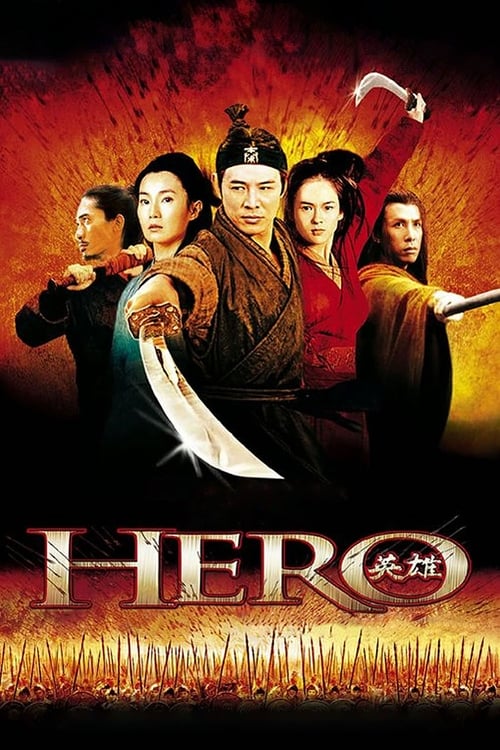"One man's strength will unite an empire."
During China's Warring States period, a district prefect arrives at the palace of Qin Shi Huang, claiming to have killed the three assassins who had made an attempt on the king's life three years ago.
More

During China's Warring States period, a district prefect arrives at the palace of Qin Shi Huang, claiming to have killed the three assassins who had made an attempt on the king's life three years ago.
Hero: Zhang Yimou's Cinematic Poem of Movement and Meaning In "Hero", Zhang Yimou transcends the martial arts genre, transforming physical combat into a language of profound philosophical discourse. What begins as a seemingly simple narr...